Related Research Articles
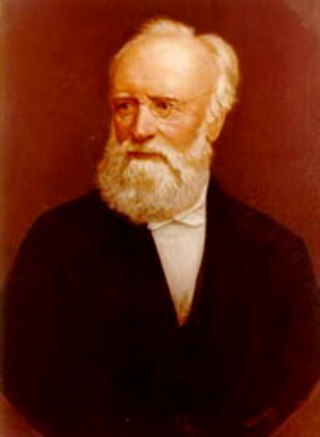
William Crawford Williamson was an English Naturalist and Palaeobotanist.
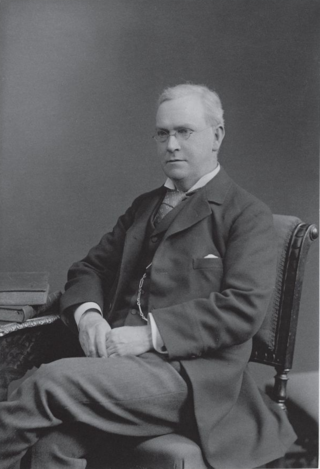
Sir Horace Lamb was a British applied mathematician and author of several influential texts on classical physics, among them Hydrodynamics (1895) and Dynamical Theory of Sound (1910). Both of these books remain in print. The word vorticity was coined by Lamb in 1916.
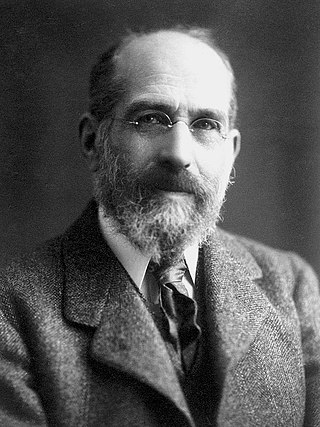
Sir Franz Arthur Friedrich Schuster was a German-born British physicist known for his work in spectroscopy, electrochemistry, optics, X-radiography and the application of harmonic analysis to physics. Schuster's integral is named after him. He contributed to making the University of Manchester a centre for the study of physics.
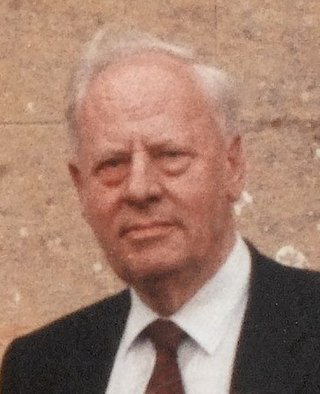
Michael Meredith Swann, Baron Swann, FRS, FRSE was a British molecular and cell biologist. He was appointed chairman of the BBC, awarded a knighthood and subsequently a life peerage.

Sir George Clarke Simpson KCB CBE FRS HFRSE was a British meteorologist. He was President of the Royal Meteorological Society 1940/41.
Owen Thomas Jones, FRS FGS was a Welsh geologist.
Sir Martin Wyatt Holdgate is an English biologist and environmental scientist.

Sir John Graham Kerr, known to his friends as Graham Kerr, was a British embryologist and Unionist Member of Parliament (MP). He is best known for his studies of the embryology of lungfishes. He was involved in ship camouflage in the First World War, and through his pupil Hugh B. Cott influenced military camouflage thinking in the Second World War also.
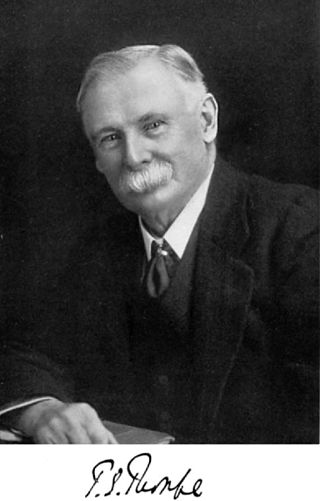
Sir Thomas Edward Thorpe CB, FRS HFRSE LLD was a British chemist. From 1894 to 1909 he was Chief Chemist to the British Government, as Director of the Government Laboratory.

Prof John George Adami was an English pathologist. He was the head of the pathological department of the Royal Victoria Hospital. From 1892, he was professor of pathology in McGill University, Montreal, Canada. During World War I, he was accorded a temporary commission in the Canadian Army Medical Corps to serve as the official historian for the medical branch. Starting in 1919, he was the Vice-Chancellor of the University of Liverpool.
Leonard Harrison Matthews FRS was a British zoologist, especially known for his research and writings on marine mammals.
Sir Frederick Henry Stewart was a Scottish geologist and academic who was a professor at the University of Edinburgh.
Edward HindleFRS FRSE FIB FRGS FRPSG was a British biologist and entomologist who was Regius Professor of Zoology at the University of Glasgow from 1935 to 1943. He specialised in the study of parasites.
William "Billy" Stirling MD LLD DSc FRSE, was a Scottish physiologist. He served as professor of physiology and was a founder of the physiology department at the Victoria University of Manchester.

James Hartley Ashworth FRS FRSE DSc SZS was a British marine zoologist.
Herbert Graham Cannon FRS FRSE FLS FRMS (1897–1963) was a leading English zoologist and keen supporter of Lamarckism.
Charles Henry O'Donoghue FRSE FZS was an English zoologist who studied molluscs, a malacologist. His publications mostly deal with sea slugs and he also named a number of Bryozoans. A collection of over 700 items left to the University of Reading is known as the O'Donoghue Collection.

John Stephenson CIE FRS FRSE FRCS was a surgeon and zoologist. He was a leading expert on the earthworms of the Indian subcontinent and served as editor of the Fauna of British India series from 1927. Knowledgeable in Persian, Hindustani and some Arabic, he was also an orientalist scholar and translated several works from Persian to English.
David Owen Morgan FRSE was a 20th-century British zoologist.

Arthur Milnes Marshall (1852–1893) was an English zoologist, known also as an administrator at Victoria University.
References
- 1 2 Rubinstein, W.; Jolles, Michael A. (27 January 2011). The Palgrave Dictionary of Anglo-Jewish History. Springer. ISBN 9780230304666 – via Google Books.
- ↑ "Former Fellows of the Royal Society of Edinburgh;(1783-2002)last1=" (PDF). The Royal Society of Edinburgh. July 2006. Retrieved January 25, 2017.